-

Your Shopping Bag is empty
The Dark Beauty of Mourning Jewellery
Mourning jewellery was a distinct style of jewellery popular during the Georgian era (1714–1837), particularly in England. These pieces were created to commemorate the deceased and often carried deep emotional and symbolic meaning for those left behind.
Mourning jewellery dates even further back to the 1600s but gained huge popularity in the 1800s when Queen Victoria mourned the death of her beloved Albert.
Here are some key characteristics of mourning jewellery:
Materials
- Jet: A black fossilized wood, commonly used due to its dark, somber appearance.
- Onyx: Another popular material, often used in its black form to symbolize grief.
- Enamel: Black or white enamel was often used, with black representing mourning for a married individual and white for a child or unmarried person.
- Gold: Mourning pieces were often set in gold, but with minimal adornment to maintain a somber tone.
- Hair: It was common to incorporate the hair of the deceased into the jewellery, either woven or placed under a glass locket.
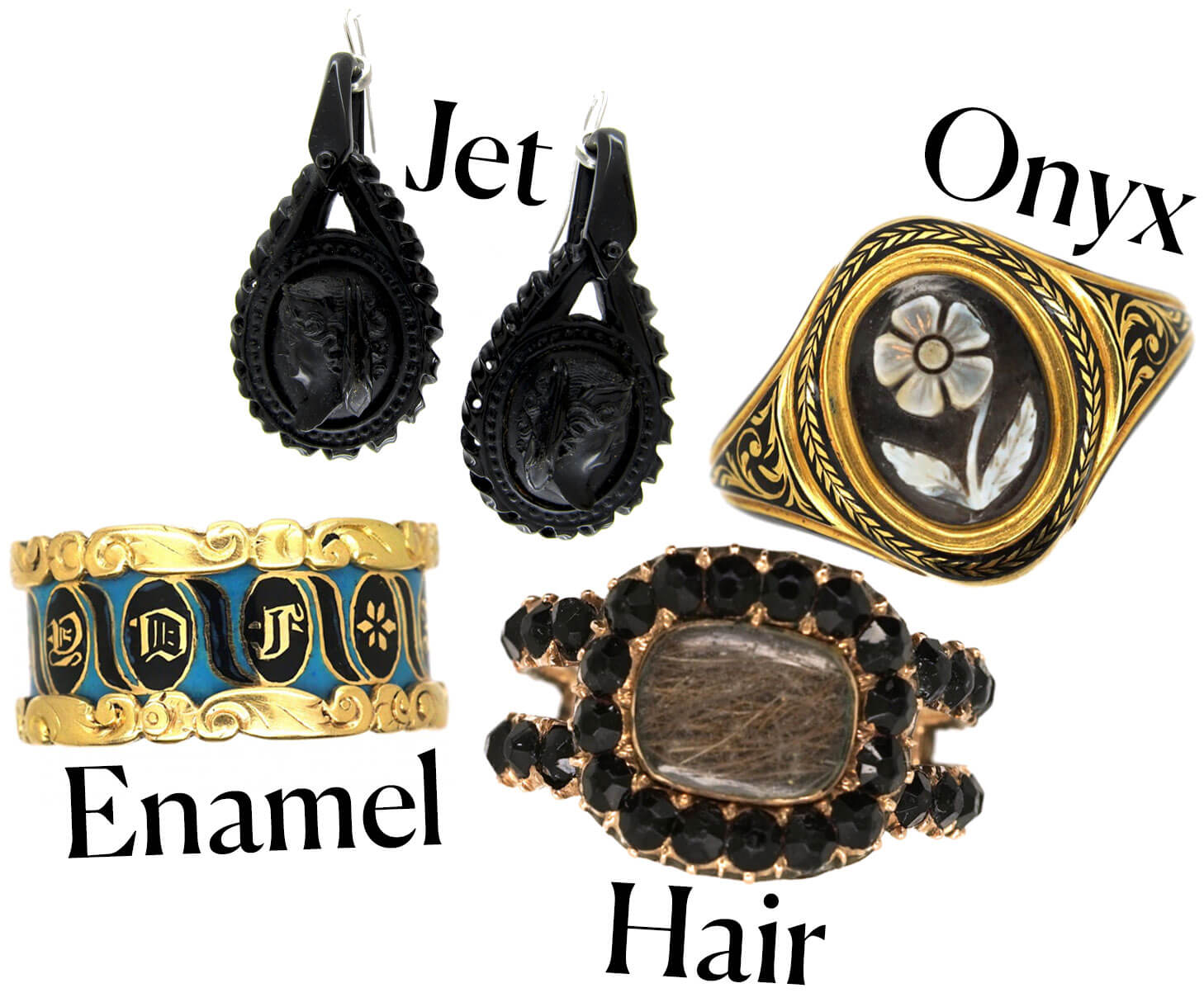
2. Designs and Symbols
- Skulls, Coffins, and Hourglasses: These symbols of mortality were often present, reflecting the Georgian era’s focus on “Memento Mori” (remember that you must die).
- Urns: Frequently featured as symbols of death and remembrance.
- Weeping Willows: Symbolized grief and mourning.
- Portrait Miniatures: Some mourning jewellery contained small portraits of the deceased.
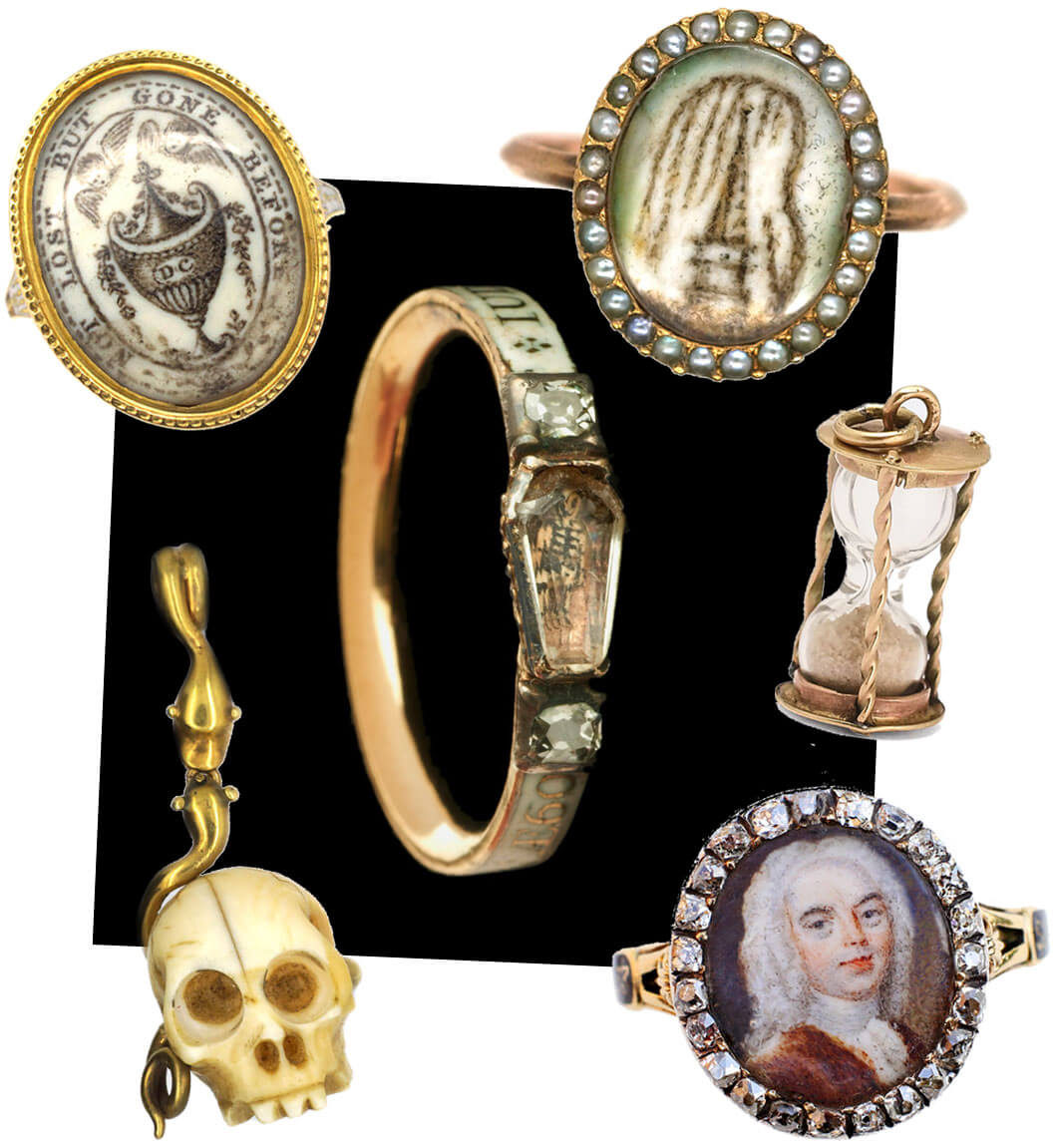
3. Types of Jewellery
- Rings: Mourning rings were commonly given to family members and close friends of the deceased. They often featured the name, age, and date of death of the person being remembered.
- Lockets: These lockets would often contain a miniature portrait or a piece of hair from the deceased.
- Brooches: Mourning brooches also frequently incorporated hair and were pinned close to the heart.
- Bracelets and Pendants: Made in memory of loved ones, these could also include inscriptions or symbols of death.
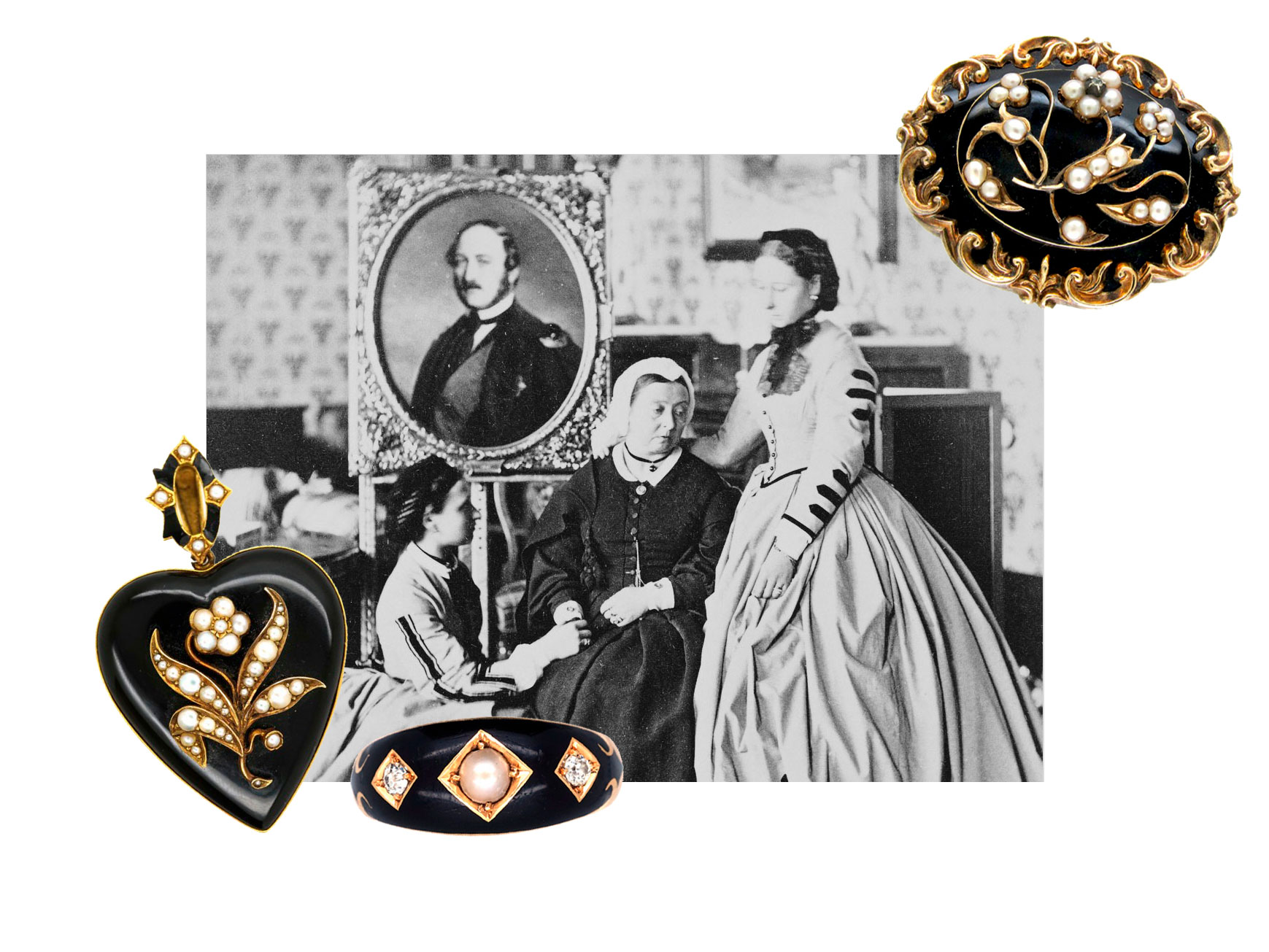
4. Purpose and Social Context
Mourning jewellery was worn as a sign of respect for the deceased and to remind the living of the inevitability of death. It played a significant role in Georgian society’s mourning rituals, which were often elaborate, with strict social rules governing how long one should mourn and what kind of mourning attire, including jewellery, should be worn.
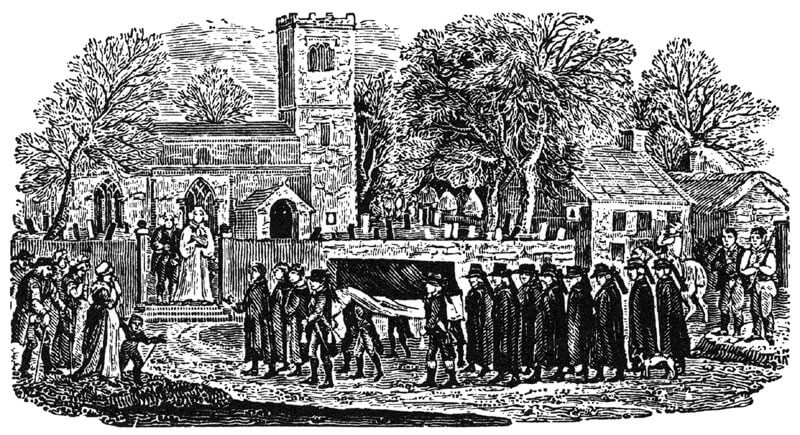
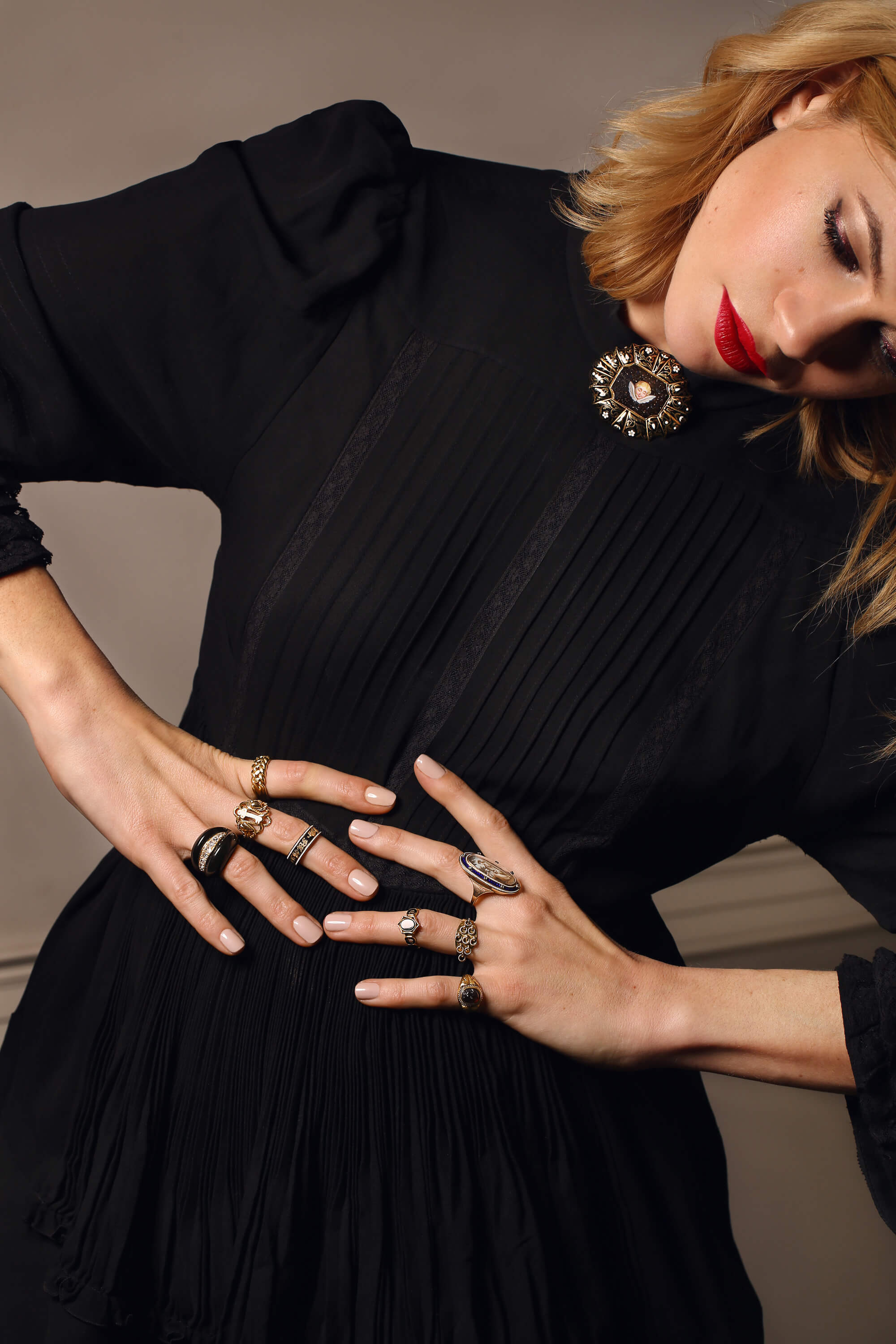
The mourning jewellery of the Victorian era had softened to act as tokens of remembrance for the deceased. Motifs were symbols of grief: willows, angels, clouds, initials, to name a few. The mourning dress code was extremely strict during this period, particularly for women. Black had to be worn for the ‘deep mourning’ stage, lasting two to three years. Black mourning jewellery gradually gave way to dark colours in the later stages.
Incorporating the deceased’s hair was very common in mourning jewellery. Jet was the most popular material used, along with vulcanite and gutta percha.
White enamel represented the death of an unmarried female virgin or a child.
Children were sometimes remembered with pearls, which represented tears.
Turquoise meant ‘thinking of you’. Richer families set precious stones into the mourning jewellery created for their loved ones.
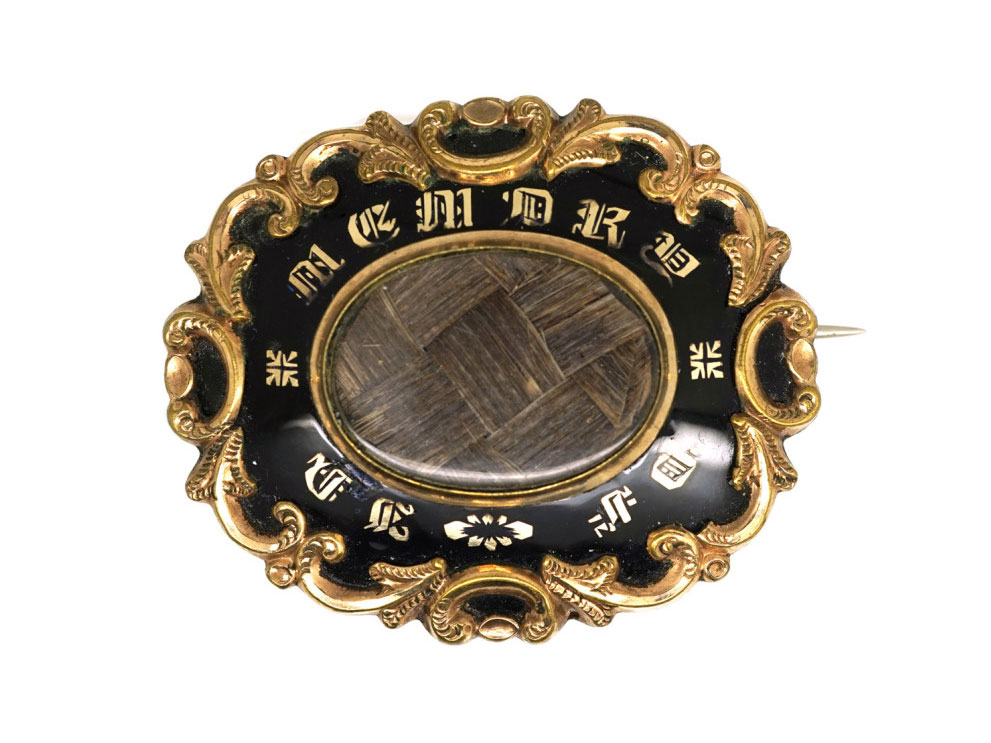
Mourning jewellery is dramatic and eye-catching – intricate paintings and motifs set against a deep black background. It remains popular amongst collectors of antique jewellery still today.
Some of our favourite mourning pieces
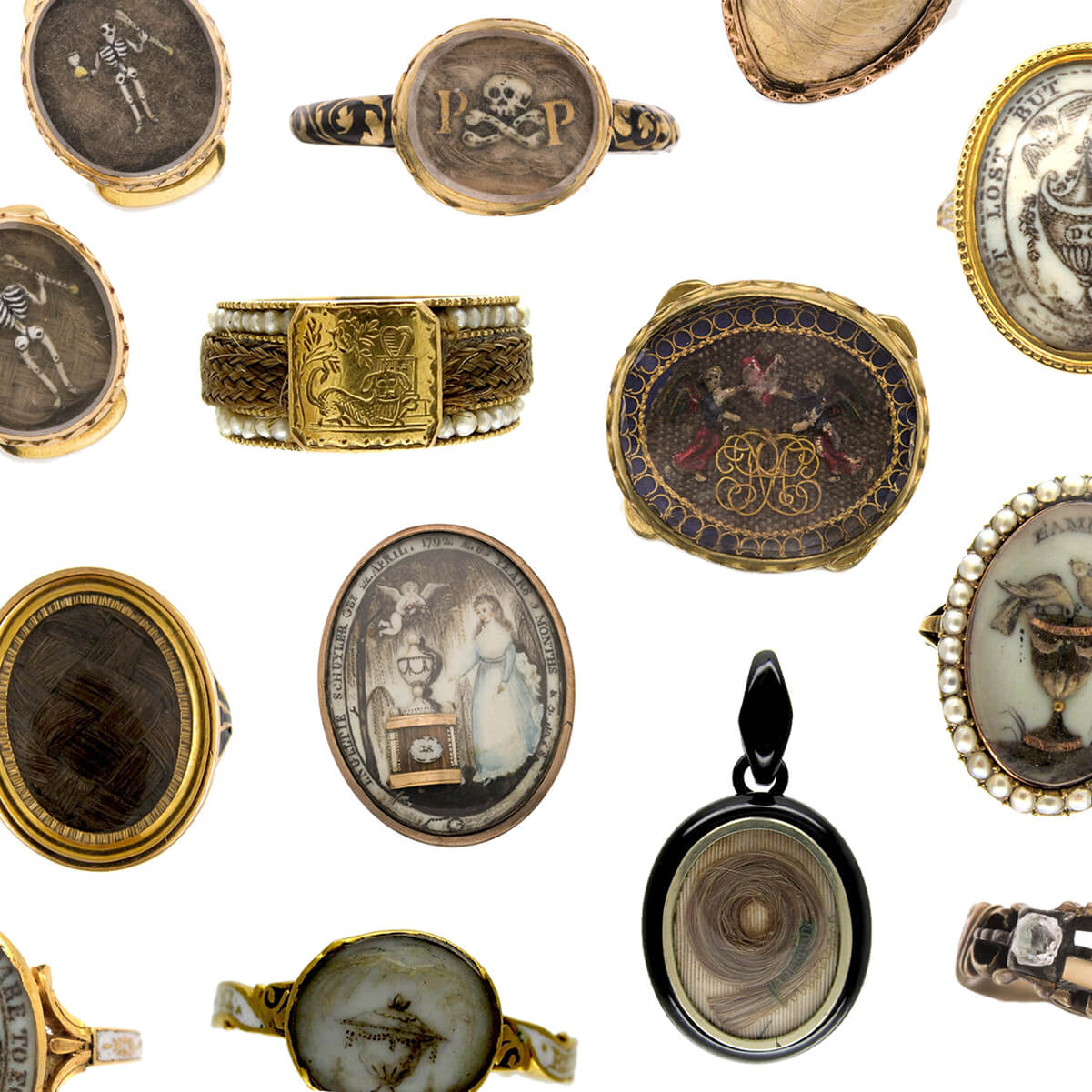



 Free Worldwide Delivery
Free Worldwide Delivery View All
View All
 Diamond
Diamond
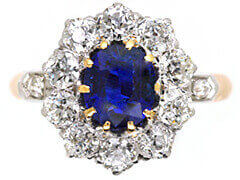 Sapphire
Sapphire
 Emerald
Emerald
 Ruby
Ruby
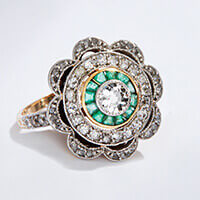
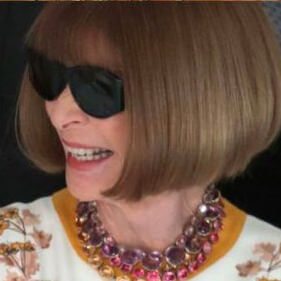


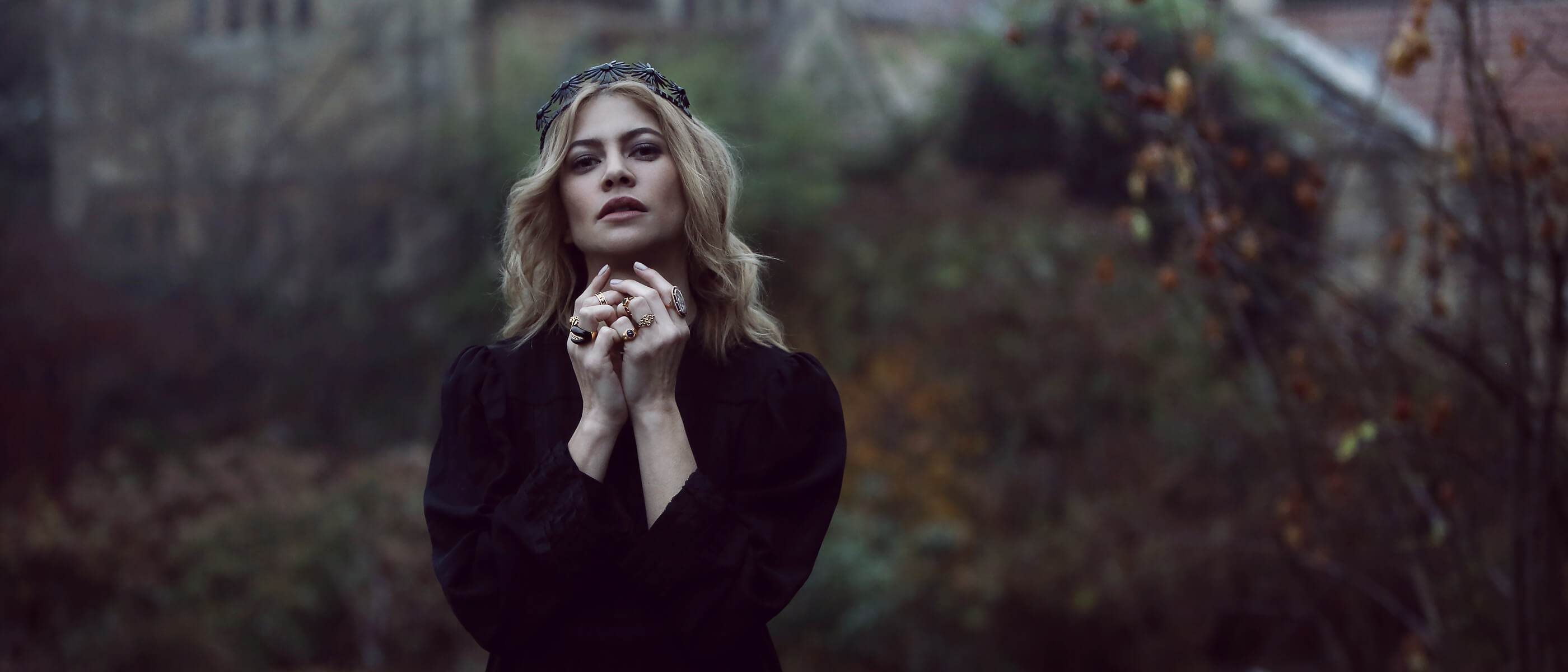
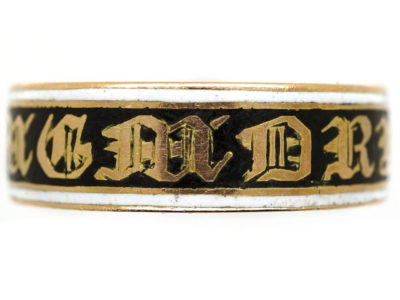
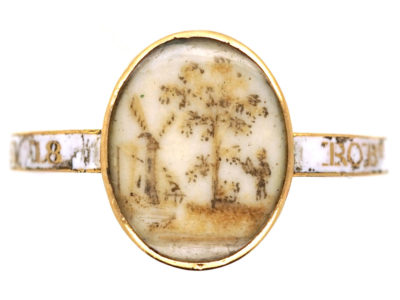
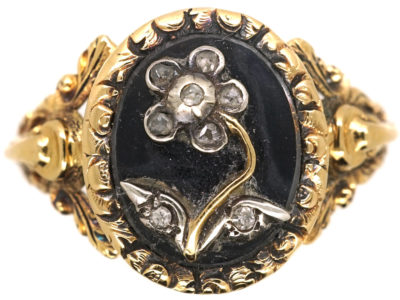
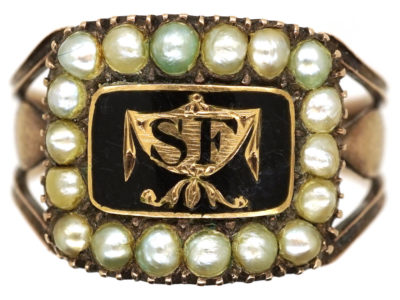
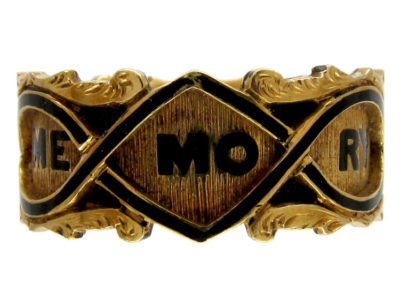
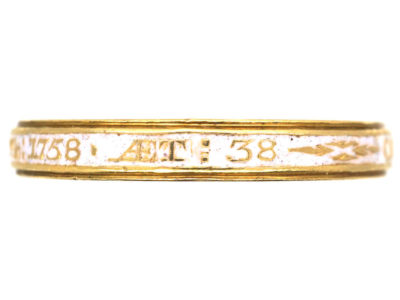
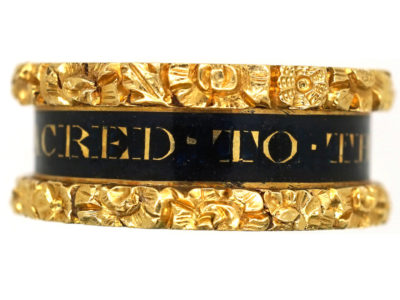
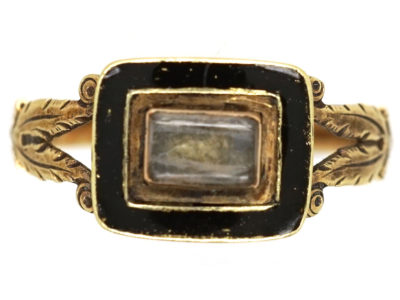
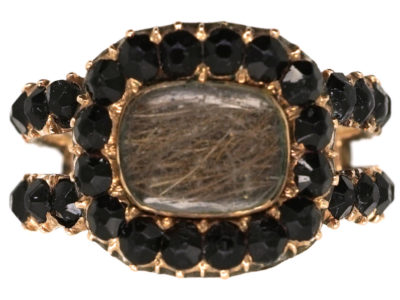
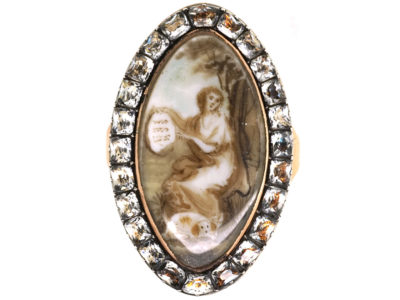
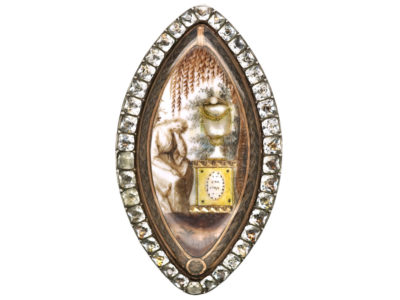
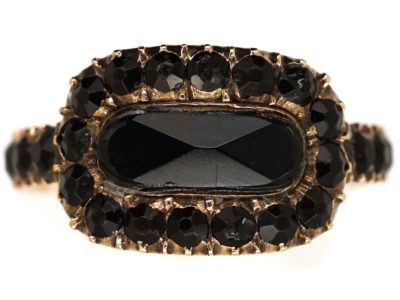
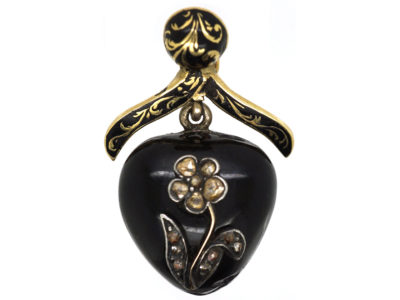
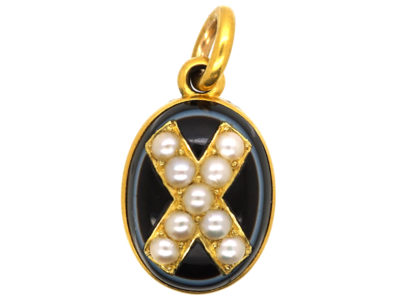
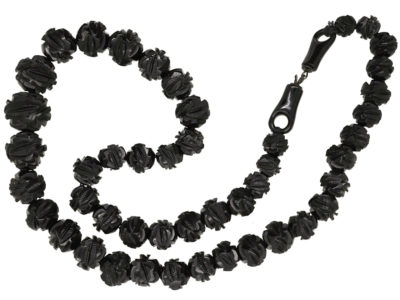
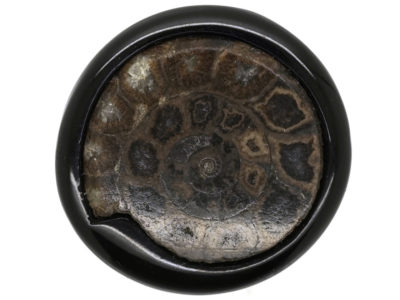
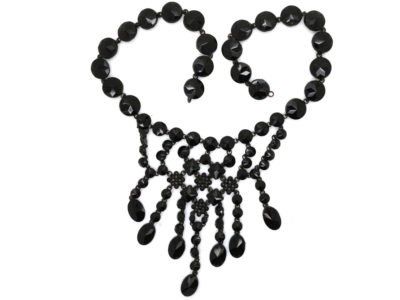
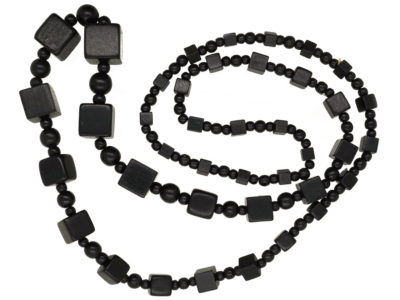
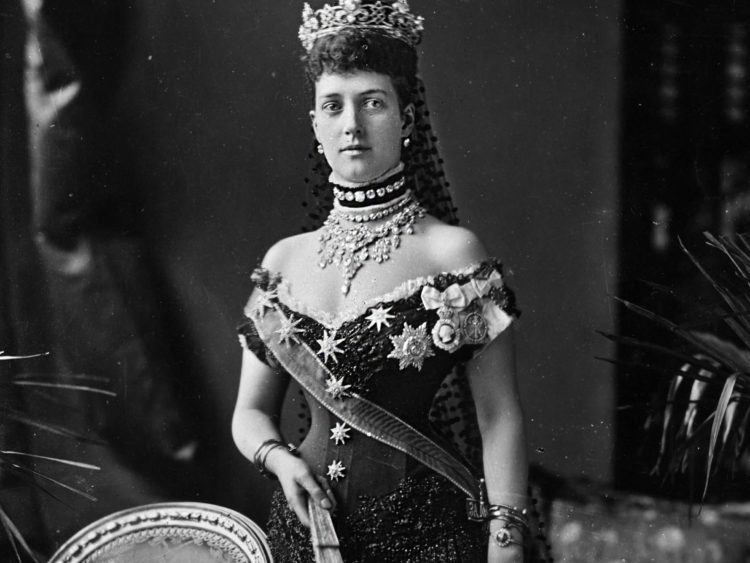
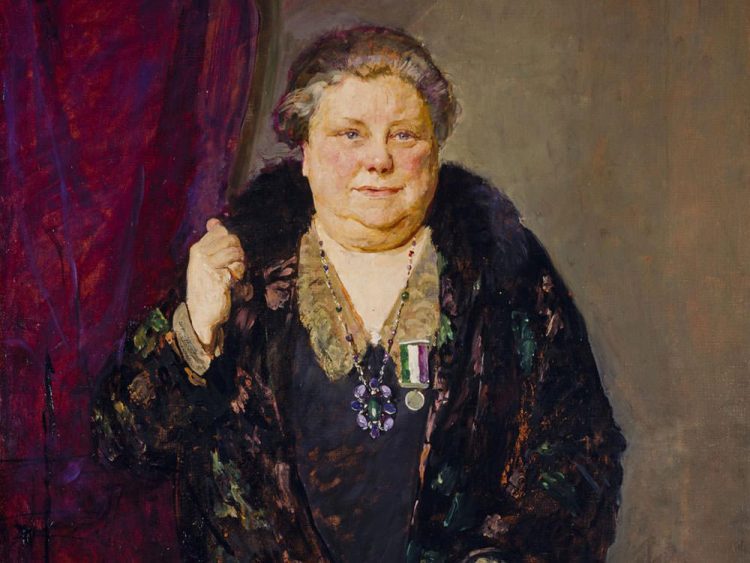
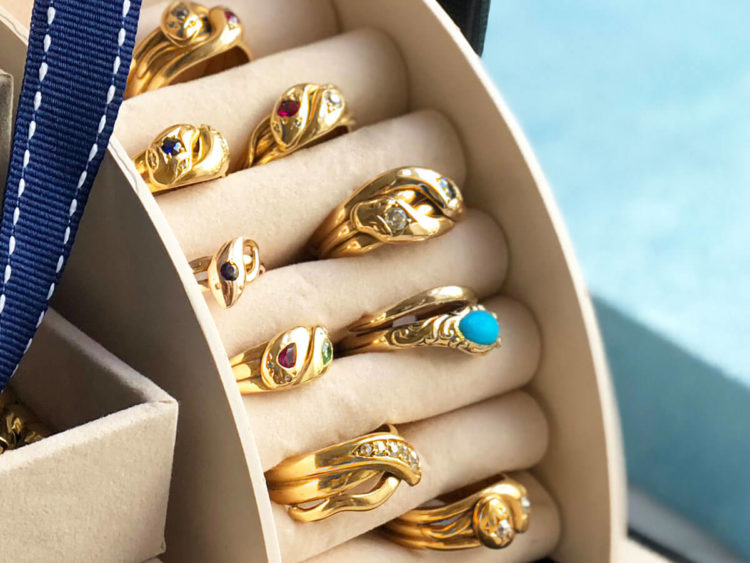
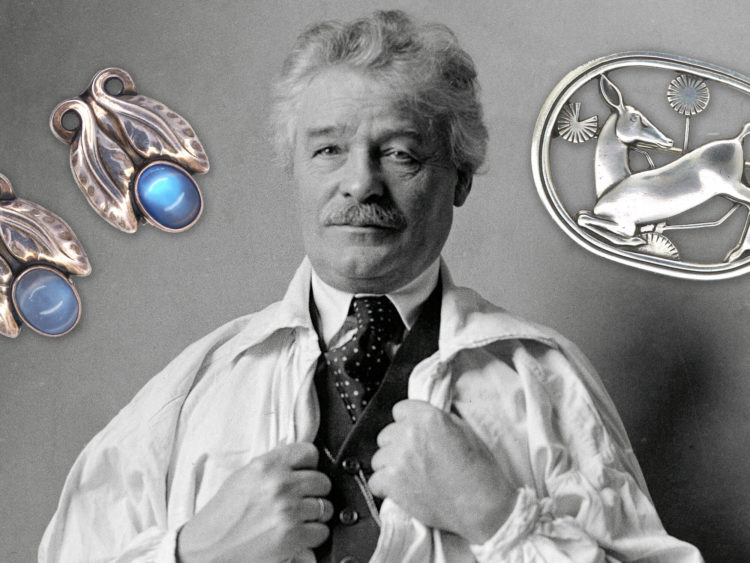
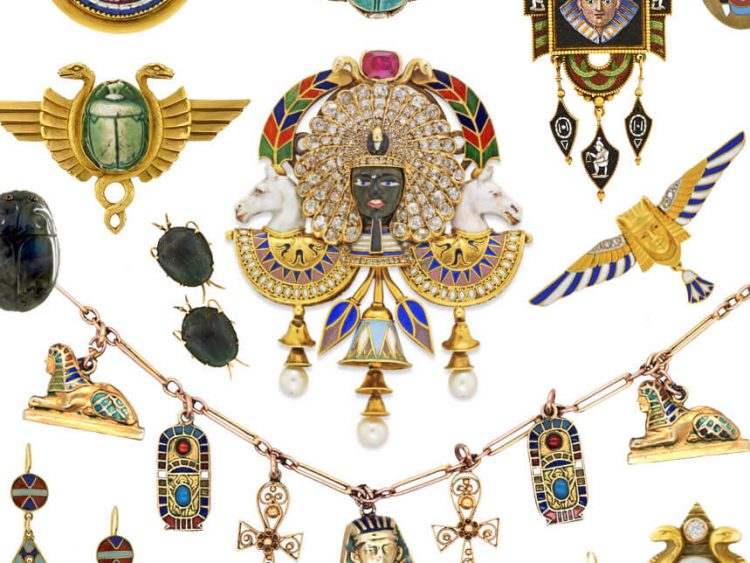
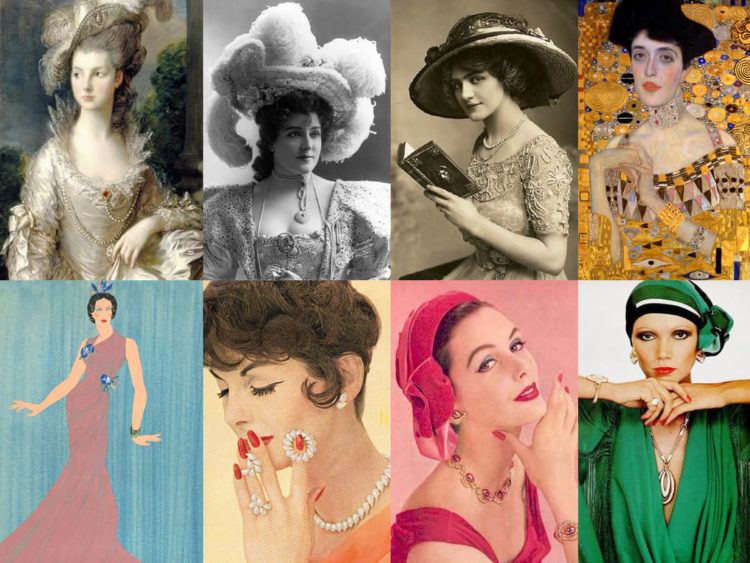
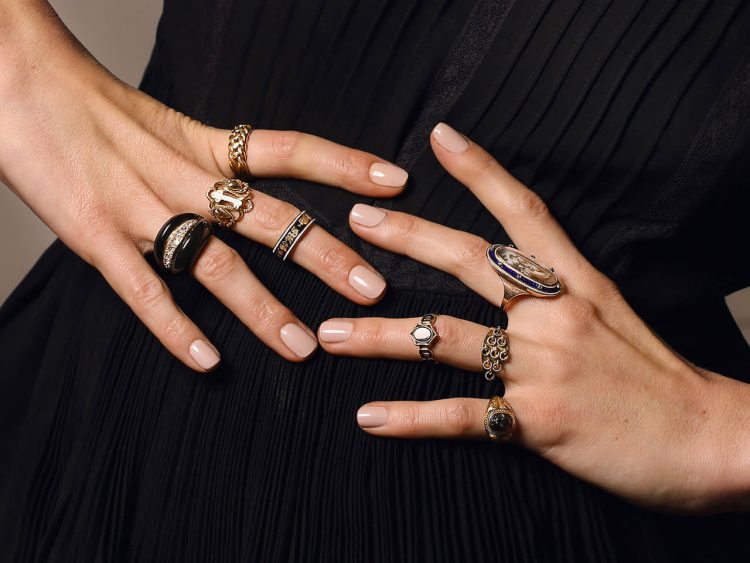
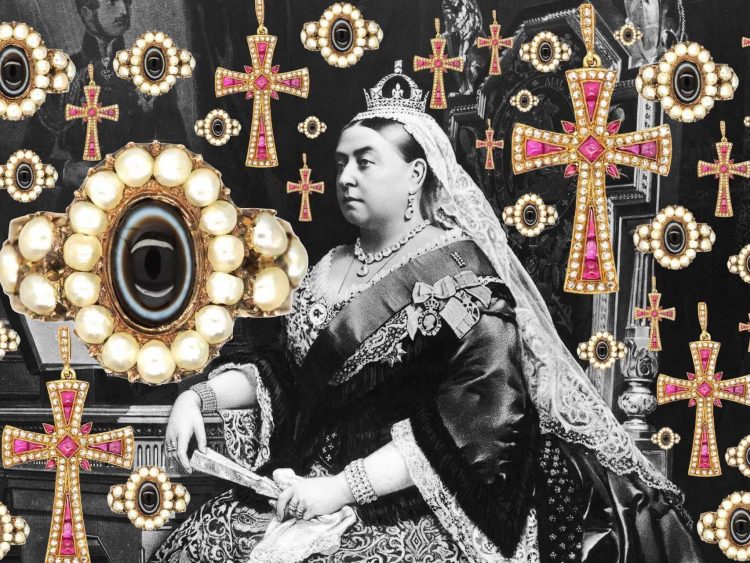
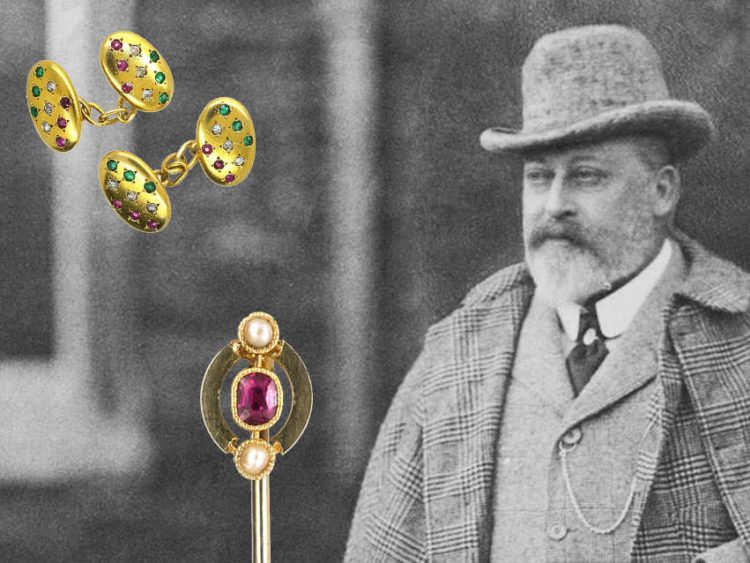
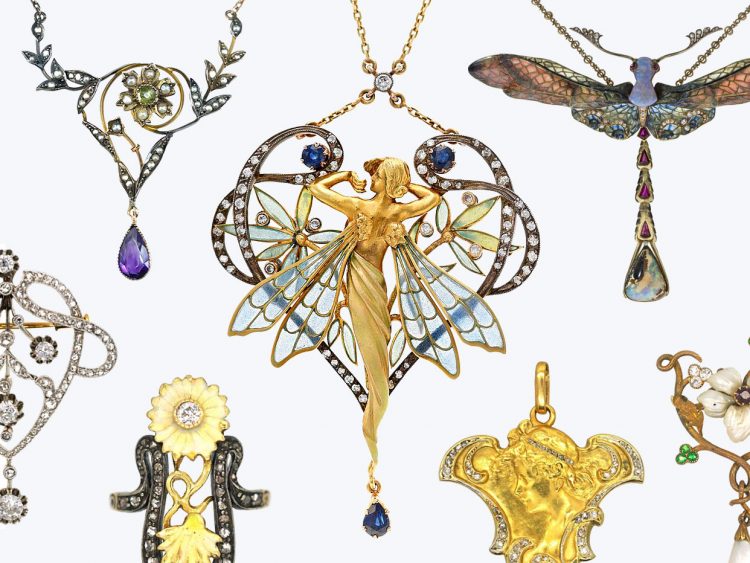
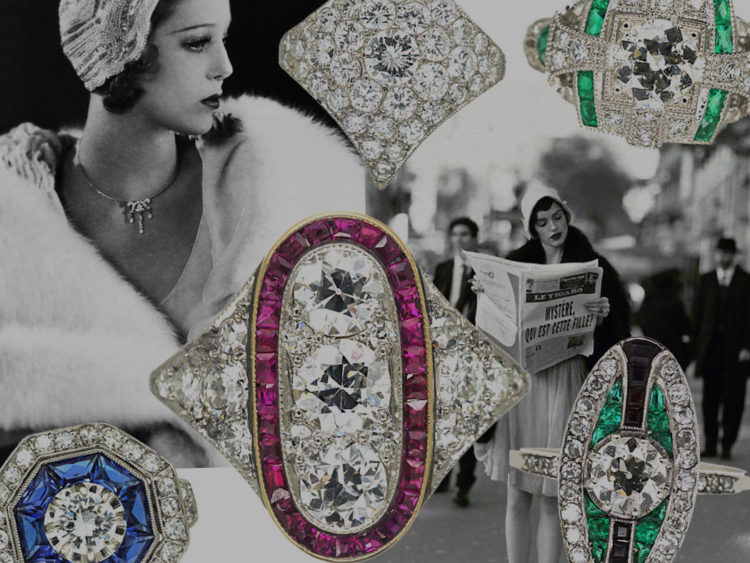
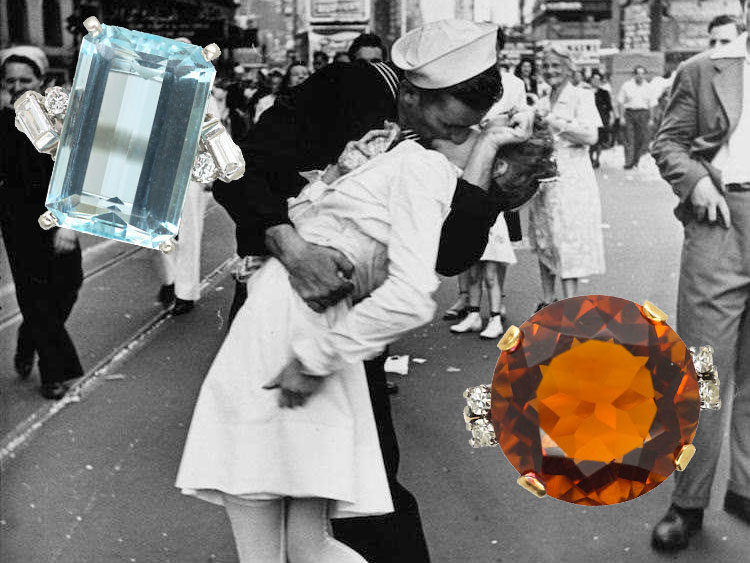
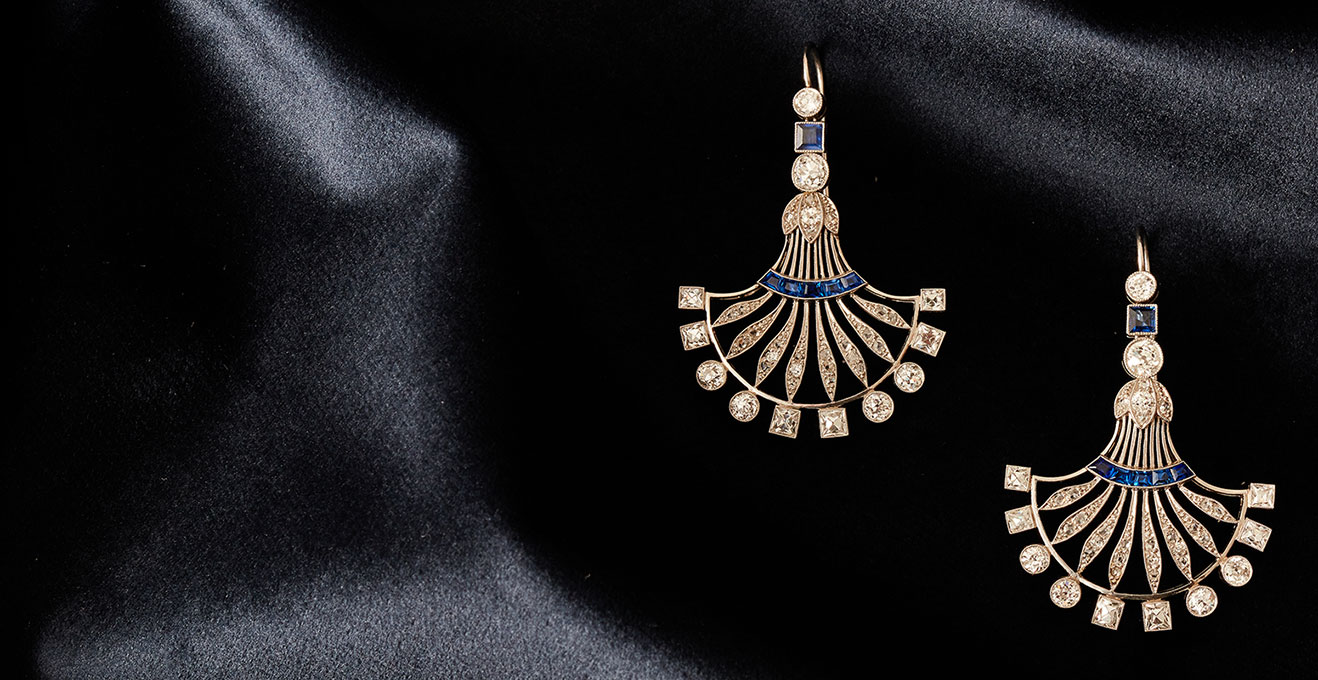
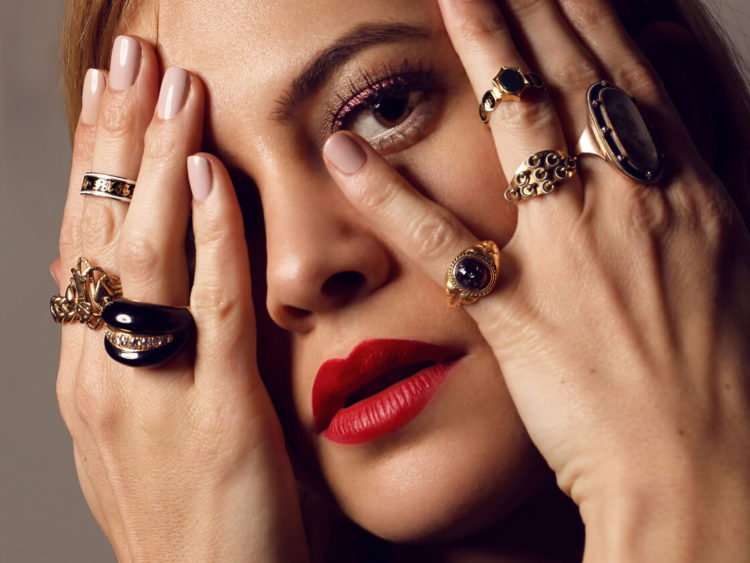
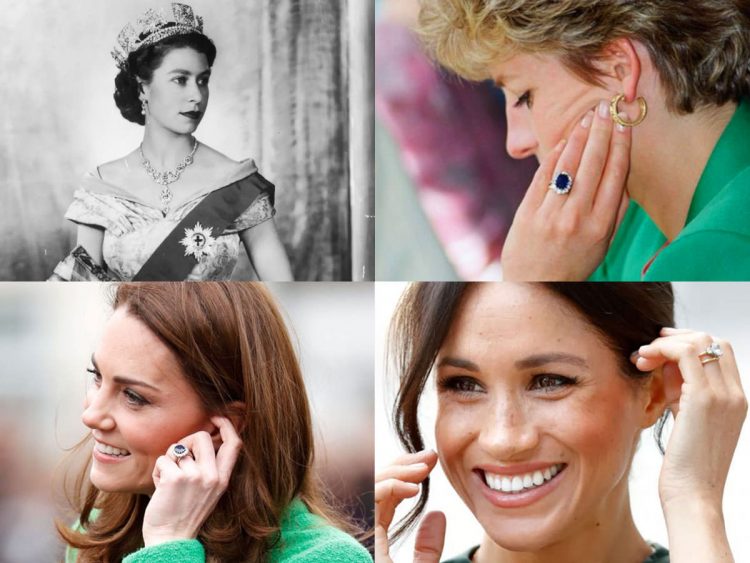
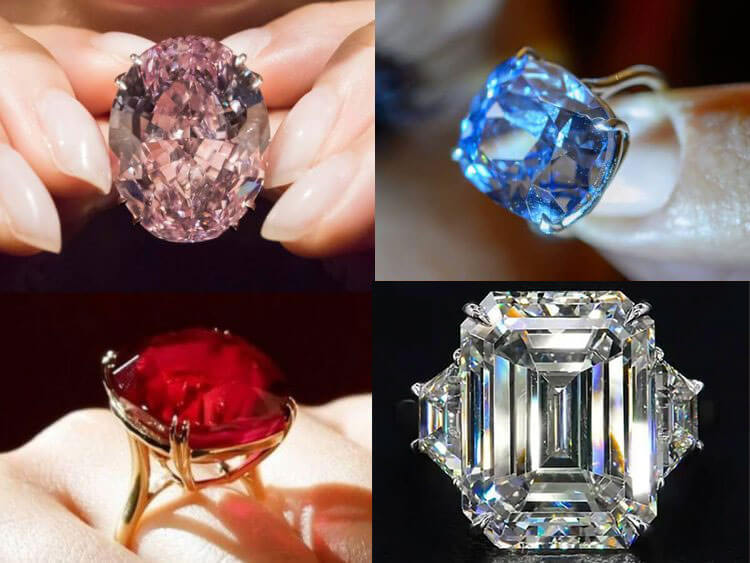
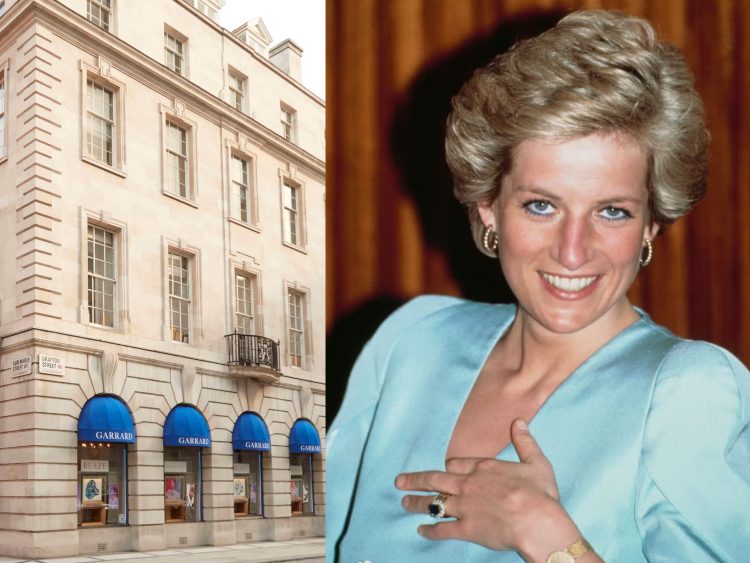
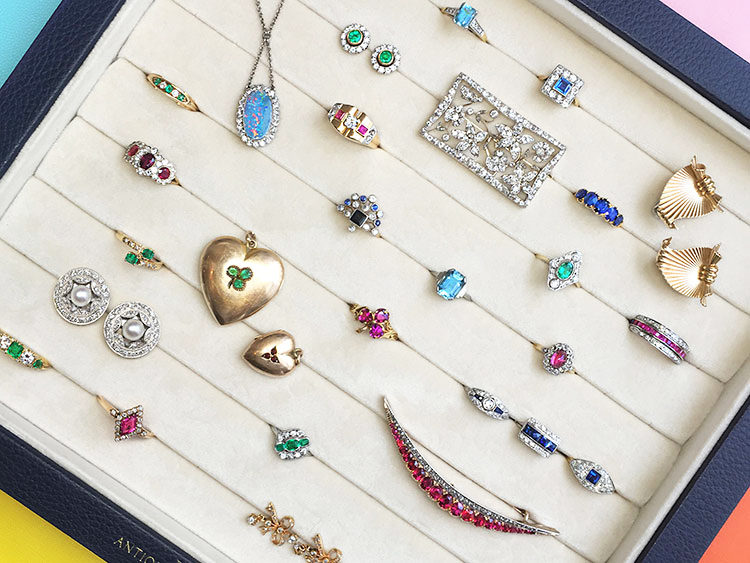
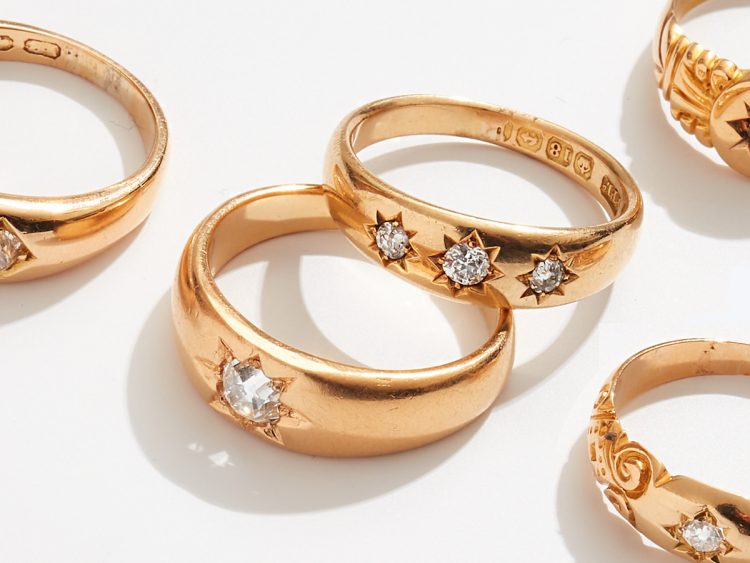

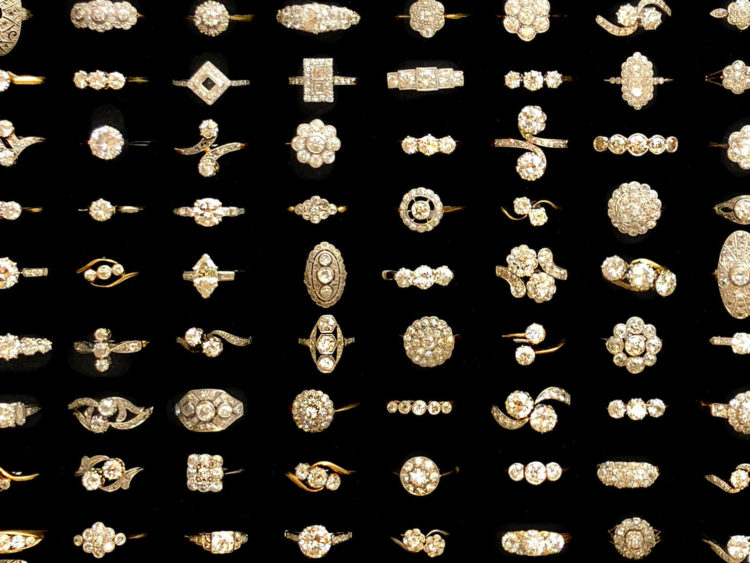
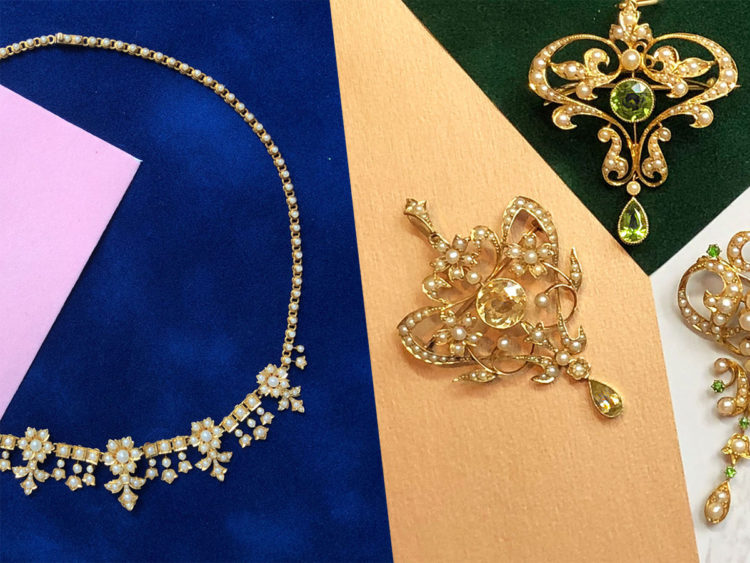
I love mourning jewellery! I think you should start doing a series that goes into greater depth about antique jewellery and the wonderful rarities in your collection. I’m sure I’m not the only only one who thinks that it would further peoples’ interest in the art form.
I love mourning jewellery!
1